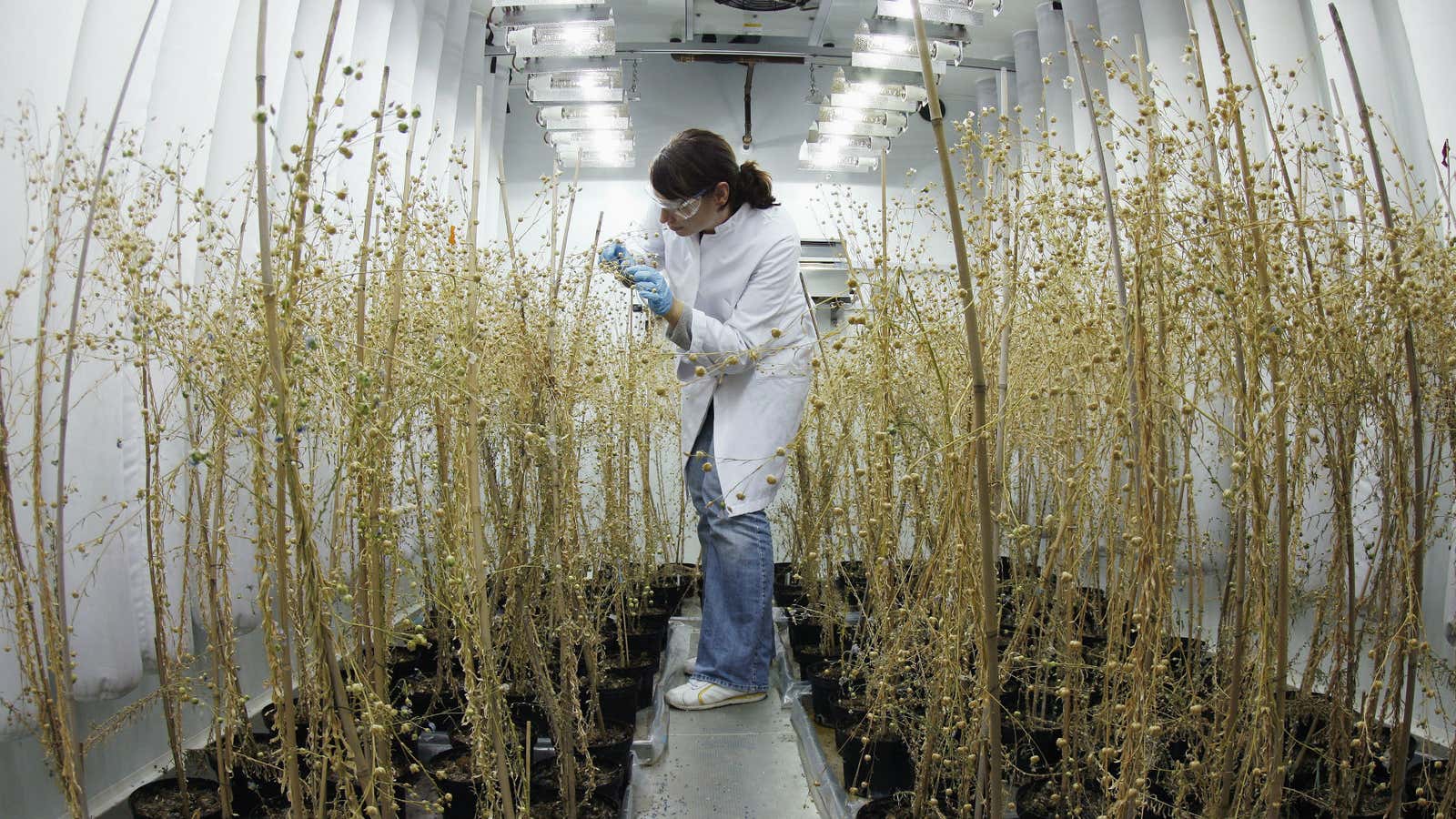Science is a brutally competitive field. Long days in the lab are a given. Every hour of available time is an advantage, especially in the crucial early years of a postdoctoral career.
Developmental biologist Christiane Nüsslein-Volhard is well acquainted with the demands of the laboratory. Her work on the role of genetics in embryonic development has led to honors including the 1995 Nobel Prize. And as director of the Max Planck Institute for Developmental Biology, she saw a striking disparity in the amount of time available to her PhD advisees—and took specific notice of how it was disadvantaging those who were women with children.
They were committed researchers. Their children were in full-time care during the workday. But in those later hours, when male peers and female colleagues without children were squeezing in extra reading or research, women with children were washing dishes and doing the laundry that piled up during the week. They were staying home from conferences because they had no overnight childcare. Exhausted and demoralized, some were abandoning their scientific goals in favor of careers that better accommodated the daily grind of family life.
In response, Nüsslein-Volhard (who does not have children herself) started a foundation with a very specific goal: to free women scientists with children from the burden of household tasks at a make-or-break point in their career.
Recipients of a Nüsslein-Volhard stipend must be women pursuing graduate or postdoctoral work at a German university or institution, or who received their doctorate in Germany and are continuing their research abroad. For one calendar year, honorees receive €400 per month (about $470) for anything that alleviates their domestic load: housecleaning services, time-saving appliances like dishwashers or electric dryers, babysitters for nights and weekends when the daycare center is closed or unavailable. (Applicants are expected to have full-time childcare arrangements already.) There is also an annual meeting of program alumna, which many recipients say is a crucial source of networking and support.
“It really made a difference for me, at a very important point in my career as a scientist,” said Nadine Neumayer, research group leader in the Galaxies and Cosmologies Department of the Max Planck Institute for Astronomy in Heidelberg, Germany. Neumayer received the stipend in 2006, as a PhD student with a young baby.
“There were basically no role models at my institute or that I personally knew of who went through a similar situation,” she told Quartz At Work. “I felt that many of my (mainly male senior) colleagues could not imagine raising a small baby and finishing a PhD thesis at the same time. However, I was committed to doing so, and the support by the CNV foundation showed me that other people believed in the possibility as well.”
Agata Karska, now a professor of astrochemistry at the Nicolaus Copernicus University in Torun, Poland, used her 2012 award to outsource chores and childcare that she’d been doing at the expense of her professional ambitions. It also gave her the confidence to push back against evening meetings and other workplace norms that penalized scientists with families, she said. Others attributed the support from the foundation and its alumna to their decision to remain in science.
“I didn’t know if I should stay in academia but meeting women who did (and did great!), contributed largely to my decision to go from Germany to the United States for a postdoc position,” said Simone Brixius-Anderko, a postdoctoral research fellow in medicinal chemistry at the University of Michigan.
Heike Heth, managing director of the Tübingen, Germany-based foundation that awards the stipends, said she’s unaware of any other organization that supports women scientists in this way.
The time deficiency Nüsslein-Volhard identified among her PhDs is a pervasive and long-standing one that affects women’s success in academia and beyond. A 2010 study by scientists Londa Schiebinger and Shannon K. Gilmartin found that women scientists with partners at home spent twice as much time on household chores as partnered men scientists. Women scientists at elite research universities did an average of 54% of their household’s core tasks like laundry, grocery shopping, and cooking, while their male peers picked up only 28% of the burden in their homes.
Most working parents are happy to let the small things slide. (The late astrophysicist Vera Rubin attributed her success as a scientist and mother of four to the fact that she made a deliberate choice never to care how clean her children kept their rooms.) But a housework-free home is simply not possible—at least not one in which it is safe to live. Someone has to do dishes and laundry, or you’ll run out of cutlery and underpants. Someone has to be with the kids while you’re pulling a late night at the lab.
Those tasks can be contracted out, but that costs money that many early-career workers don’t have—a reality that Nüsslein-Volhard recognized, and increasingly others have too.
In their 2010 study, Schiebinger and Gilmartin recommended that employers expand their benefits programs to cover household assistance. They envisioned a flexible benefits package that replaces the various subsidies many institutions offer on childcare, tuition, and other expenses with an annual stipend that could be used by employees for childcare, eldercare, domestic assistance, or “any aspect of private life that saves employee time and hence enhances productivity.”
They recommend, in other words, that everyone get a version of the Nüsslein-Volhard stipend.
